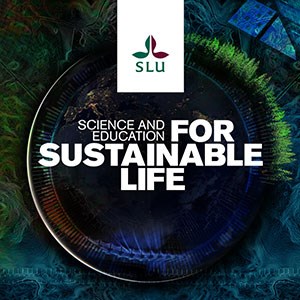Contact
Department of Applied Animal Science and Welfare, Aquakultur
Department of Animal Biosciences (HBIO), HBIO, Quantitative Genetics and Breeding

The popular aquaculture course will return starting in the autumn semester 2021, in a new, updated version. You will study the most commonly farmed fish species and their reproduction, genetics and breeding, nutrition, health and welfare, and production systems.
Aquaculture is the fastest growing food production sector globally, having already surpassed production from wild fisheries. According to the Food and Agriculture Organization of the United Nations, fish consumption by humans is expected to increase by over 20 % by 2030. Furthermore, the Swedish Government has prioritised the increase of Swedish aquaculture production as part of its food-related strategy and has invested SEK 7 million for the 2020–2025 period.
- It is important that we expand the university’s portfolio to include a course on one of the most dynamic and rapidly-expanding food production sectors, says associate senior lecturer and course coordinator Kartik Baruah.
The course is available to both undergraduate and Master’s students, and will give them the tools and education they need for their future roles in aquaculture. It is a part-time distance learning course with 2–3 campus/study visits, meaning students can combine this introduction to aquaculture with their main subject or line of work.
The course has been coordinated by associate senior lecturers Kartik Baruah and Christos Palaiokostas, with contributions from Professor Anders Kiessling.
It will look at open and closed aquaculture from an international perspective, with particular focus on fresh and brackish water aquaculture. The course covers topics such as the different aquaculture species and their production systems, genetics, breeding, nutrition, health and welfare.
- We plan to make use of online learning platforms and combine distance learning with short on-campus meetings and study visits. This enables us to invite world-renowned aquaculture scientists to hold guest lectures, and interact directly with our students, says Christos Palaiokostas.
Application and more information about the course in aquaculture.
(The preliminary schedule will be available in March)
For more information about aquaculture at SLU - visit SLU Aquaculture, a platform to promote and coordinate aquaculture research and education.